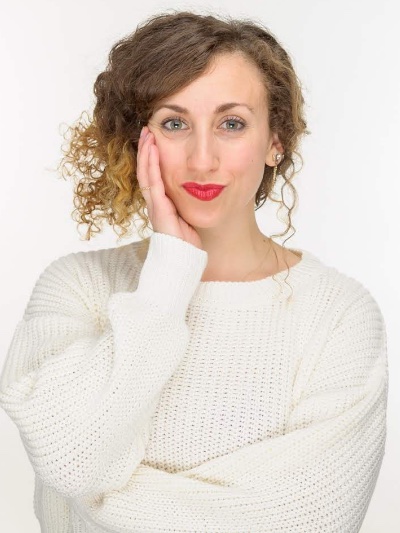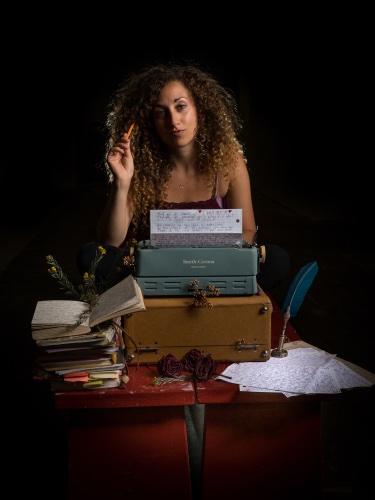4 Questions: Julia Pileggi
This article is part of our series 50 Years of Disruption, in celebration of the Department of Theatre’s 50th Anniversary. In it, we’ll ask each participant four questions about themselves and their time at York.

1. Who are you?
I’m Julia Pileggi (BA Honours Theatre Studies: Creative Ensemble 2009). I am a published writer, touring spoken word poet, interdisciplinary creator, and educator. I have featured my poetry nationally and internationally in theatres, art galleries, cafes, high schools, at burlesque shows, poetry slams, writing/music festivals, and fundraisers, with appearances on radio programs and podcasts. I facilitate poetry writing workshops with Wordplay, and have represented Vancouver competitively as a member of two slam teams at the National Poetry Slam and The Canadian Festival of Spoken Word. In 2017 I ranked in the top ten at the Canadian Individual Poetry Slam and released a poetry chapbook. I’m also co-founder (with fellow Yorkie, Sasha Singer-Wilson) of the on-going writing project www.thesefiveminutes.com, through which we host readings, writing groups, and writer’s workouts across Canada.
In my page and stage poetry I give voice to themes including self-worth, relationships, family, and (more times than intended) food.
After leaving York, I pursued acting and dramaturgy. I then graduated from The Second City Conservatory program in Toronto, added voice over and directing to my list, and landed the role of Co-Host on BBC America’s TV Series Million Dollar Critic. I moved to Vancouver in 2015 where I met spoken word, and began to collaborate with artists on a variety of creative projects.
2. What was your favourite moment during your time in the Theatre Department, and why?
My most valued experience was performing the second pass of my solo mask in 2nd year Creative Ensemble. Tasked with assembling various sources along with our own writing to discuss an issue we faced in the 21st century, my instructor, Mark Wilson, deemed my first pass about body image “too easy for me” and “not the underlying issue”. I was outraged and disagreed, but I scrapped it anyway and forced myself to dig deeper. I ended up performing an incredibly vulnerable piece about my fears around being an inadequate woman (something I still touch on in my poetry today). It was raw and playful and funny and honest. I remember Peter McKinnon laughing really hard which was a feat unto itself. I felt alive and at home on stage. After all that, Mark still wouldn’t give me a better grade—technically it wasn’t a “second” pass since I created a whole new piece. I learned to take risks in revealing myself despite the expectations, rules, rubric, or judgement.

3. What comment, quotation, statement, or action that a professor—or classmate—offered had the greatest impact on you?
Three things stick out. 1) I was worried about receiving critique on a scene in third year playwriting as Judith Rudakoff isn’t one to sugar coat. She took a moment and then all she said was, “It’s really funny.” She helped me believe I was capable. It meant everything to me. 2) My fourth year acting instructor, Melee Hutton, told me I was like an M&M: a hard shell on the outside but a soft, gooey mess on the inside. I was desperate for someone to see me for who I was and she did. It unlocked my ongoing quest for shared vulnerability on stage. 3) Something I consider almost daily is Mark Wilson saying, “Open their mouths with laughter, then shove the truth down.”
4. Is there a way you incorporate a particular aspect of your theatre training in your current work?
I use physical and vocal warm ups all the time—God bless the roll-down. I connect easily with audiences because of the exercises we did to practice taking in the room, and letting ourselves be seen. When I give coaching or feedback, I’m always calling upon my critical eye (deeply honed in second year Creative Ensemble) where we learned to speak our minds, and give constructive and positive notes by using “what worked for me was”. And thanks to Judith, I still use “There Are Stories About” to get my writing going, and the four elements in my character discovery both on the page and on stage.
